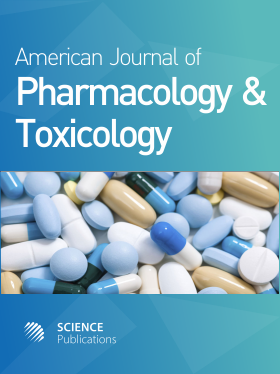Plasma Bilirubinaemia; A Physiologic Index for Monitoring Cellular Effects of Amalar, Chloroquine, Cotecxin and Fansidar
- 1 University of Uyo, Nigeria
Abstract
Problem statement: Antimalaria drugs are highly consumed in Africa due to increase prevalent of malaria attacks. Though the disease is often cured with some antimalarials the physiologic effects of such drugs may not be considered in pharmacologic preparations and in prescriptions. Such non consideration is likely to result in serious health problems which may outweigh the effects of malaria disease or become double jeopardy in the event of management of the disease.Objective;. To determine the negative effects of amalar, chloroquine, cotecxin and fansidar on bilirubin concentration. Approach: Thirty male and female albino rats weighing 80-141 g were used for the study. The animals were grouped into four drugs with six animals in each drug group including control. The drugs (powdered) were administered orally per weights of the animals and based on the curative and preventive dosages using canula by-passing the esophagus and delivered into the stomach. The effect of the antimalaria drugs was monitored for 28 days by colorimetric measurement of bilirubin concentration in the blood plasma collected by cardiac punture. Results: Fansidar decreased the concentration of bilirubin significantly as compared with that of control (8.64±0.33), control, 16.65±1.00) p<0.05. Chloroquine also deplete the plasma bilirubin concentration significantly as compared with control, (11.99±2.82) 16.65±1.00), p<0.05. Amalar also reduce the plasma bilirubin concentration significantly as compared with control, 12.91±1.00, 16.65±1.00, p<0.05. However, cotecxin slightly reduce the bilirubin concentration and was not significant when compared with control, 14.50±3.8, 16.65±1.00 (p>0.05). Conclusion: The study had unveiled the possibility of erythropoietic porphyria, ineffective haemoglobination and anaemia in the administration of amalar, chloroquine, and fansidar and the need to encourage potent and cells friendly malaria therapies to avoid cellular damages.
DOI: https://doi.org/10.3844/ajptsp.2009.85.88

- 5,982 Views
- 4,414 Downloads
- 0 Citations
Download
Keywords
- Bilirubinaemia
- physiologic index
- antimalarials
